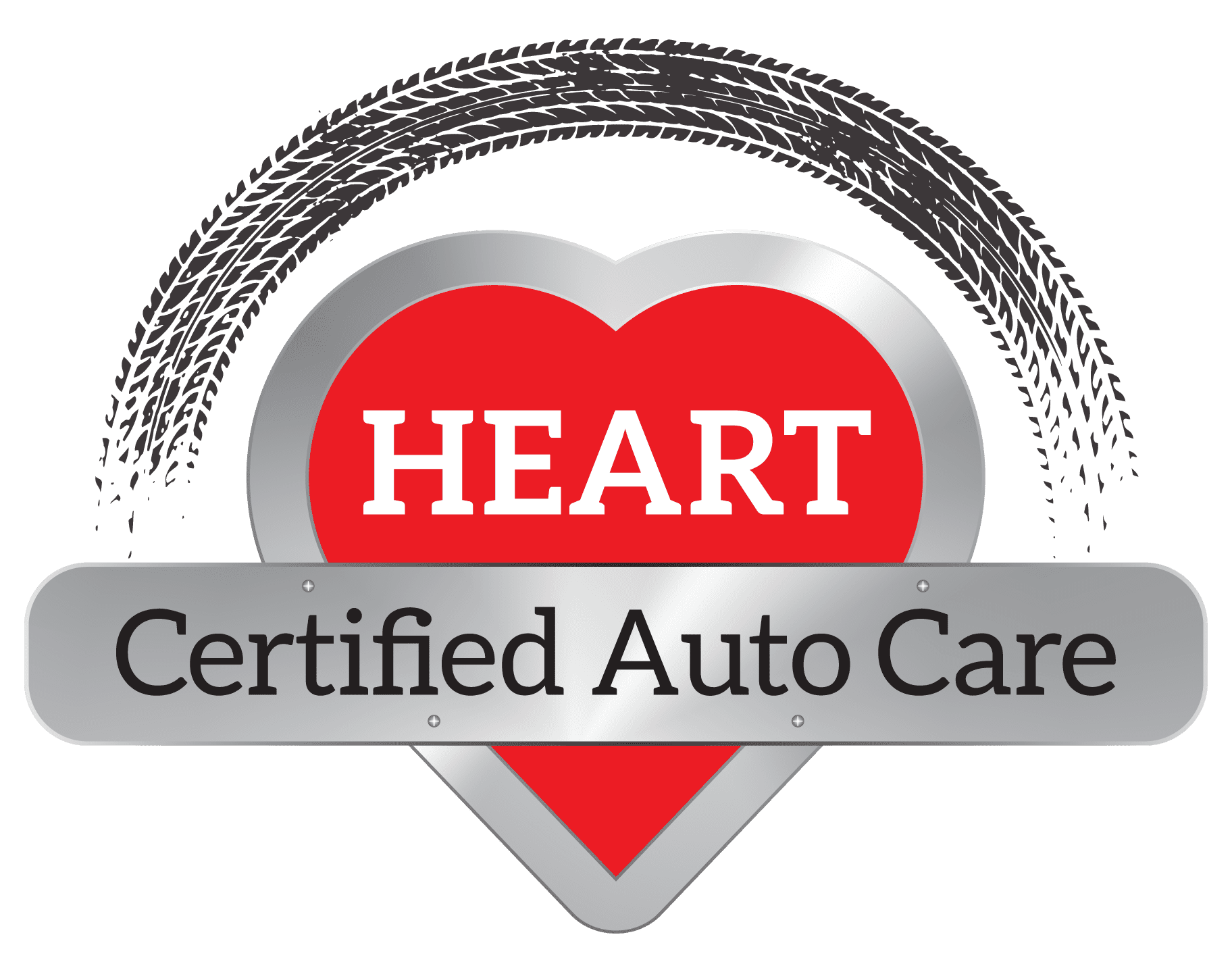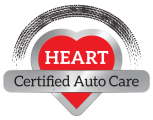Brake Repair Best Practices
Brakes are one of the most important parts of your car. They’re literal lifesavers. That’s why it’s of utmost importance you know the warning signs that your brakes or brake pads need service. To help keep you safe on the road, here are six indications that your car brakes need service and four ways to make them last longer.
1. “My brake warning light is on”
The first sign your brakes need service is the warning light. Standard on most newer models, it illuminates when your brakes or brake pads aren’t quite right. Check your owner’s manual to familiarize yourself with the symbols and their meaning, because even warning lights aren’t always straight forward.
For brake service help, stop by one of HEART Certified Auto Care’s three convenient Chicago area locations. We’ll have you riding safely in no time; 98% of our service is done same day. That’s part of the reason HEART has over 500 five-star customer reviews.
2. “My car brakes are grinding”
Grinding brakes are a huge red flag that you need brake service. If your brakes are grinding, you could have a serious problem. Either your brake pads or brake rotors are worn out, or there’s a stone or other foreign object lodged in your brake system. Try moving your car forward and reversing in a safe area; this may dislodge a stone. If the problem persists, don’t wait: visit one of HEART’s three locations in Northbrook, Evanston or Wilmette for car repair.
3. “My brake pedal is loose”
Brake pedals should feel firm when you press them. If they’re loose or soft, that likely means air is in your brake lines or you need more brake fluid. Other potential problems include failing disc brake calipers, bad wheel cylinders, or worn master cylinders. To be sure, though, it’s best you bring loose brake pedals to your local auto shop for a complete inspection and get your car repaired. It’s always better to be safe than sorry when your car’s brakes are concerned.
4. “My car smells like burning plastic”
The odor of melting plastic or burning is another obvious sign that you need brake service, most likely because there’s too much current flowing through the electrical system. This problem can lead to fire and serious injury. If you smell anything burning in your car, especially when you brake, it’s time to visit your trusted car repair professionals at one of HEART’s three locations: HEART Wilmette, HEART Northbrook, or HEART Evanston.
5. “My brake pads look worn”
You can easily check out your brake pads by looking through your wheel spokes. You should see the exterior brake pads pressed against the metal rotor. If you see less than an inch of brake pad, you need new ones ASAP.
6. “My car’s pulling”
Another surefire way to know whether your brakes need service is if your car seems to be pulling left or right, either while you’re driving or braking. If it does, it means your brake pressure is uneven, putting friction on one side or the other. This issue could be a worn brake pad or something more serious, like a sticking brake caliper, the part that holds the brake pads. Another possibility is that you have a collapsed brake hose. Either way, there’s clearly a problem and you should take your car in for brake service as soon as possible.
Four Ways to Make Your Car’s Brakes Last Longer
1. Driving Conditions
Driving in a city with many stop lights and other stop-and-go traffic can wreak havoc on your brakes and brake pads. They’re constantly tightening and loosening, leading to more wear. The same goes in mountainous or hilly areas that require using brakes to go back down. If you live in mountainous or urban areas, it’s best to check your brakes every six months, when you have your tires rotated.
2. Your Driving Style
Riding your brakes doesn’t just cause those behind you to brake more often, causing traffic, it’s also terrible on brake pads. Same with stopping suddenly, rather than gradually: it puts undue pressure on your brake pads, leading to more brake service and more cost. Save yourself the headache, and us the traffic, by using your brakes responsibly.
3. Brake Pad Density
Many people don’t realize this, but brake pads can be hard or soft. Hard brake pads last longer, but perform better when warm, while softer brake pads are preferred for places where driving is slower, as in cities, but can deteriorate in hotter climates. Talk with your car repair professional to determine which brake pads best fit your needs.
4. Brake Pad Material
The materials that make up the brake rotor and brake pad factor into the brakes’ longevity. Depending on the materials that your brakes are made of, they could last longer than other drivers’ brakes or could wear out faster.
For help with your brakes or any other car repair needs, call or visit one of HEART’s Chicago area locations: HEART Northbrook, HEART Evanston, Heart Wilmette.







